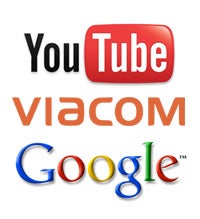 Has Viacom tripped itself up?
Has Viacom tripped itself up?
Three years ago, the entertainment company lobbed a $1 billion lawsuit against Google and YouTube, charging them with failing to crack down on illegal uploads of Viacom properties like MTV and Comedy Central’s "The Daily Show."
But in court documents released Thursday, Google counters that in fact it was Viacom employees themselves and not overzealous Jon Stewart fans who were behind much of the unlawful video sharing.
And, they charge, the practice is continuing despite the ongoing case.
Google claims that the company hired 18 different marketing agencies to secretly upload the Viacom’s content to YouTube to promote it shows — only to later publicly complain about the videos on the site and demand they be taken down.
To make them appear like the authentic work of fans, the videos were "roughed up," so they would appear to be stolen or leaked, according to a blog post by Zahavah Levine, YouTube’s chief legal counsel.
While ignoring clips from shows that had been uploaded by legitimate YouTube members, Levine claims that Viacom used fake emails to open YouTube accounts and upload content.
At the time the suit was filed, some speculated that if successful, Viacom could deliver a Napster-like death blow to the popular video-sharing site. If Google’s counter arguments are true, Viacom be seen as suffering from some sour grapes.
Also in the newly released documents, Google claims that Viacom had expressed interest in buying YouTube in 2006 — before Google acquired the fledgling video site for a staggering $1.65 billion.
Representatives for Viacom did not immediately return requests seeking comment.
In the documents, however, Viacom fired back: "Google and YouTube were not just innocent and unwitting accomplices to infringement perpetrated by YouTube users … Defendants operated YouTube with the unlawful objective of using infringing material to explosively build their user base and become the dominant video website on the Internet."
Google is arguing that any violations of copyright were inadvertent. Further, the company claims it is protected under the Digital Millennium Copyright Act, which indemnifies websites like YouTube from copyright liability as long as they remove unauthorized content once they are notified.

